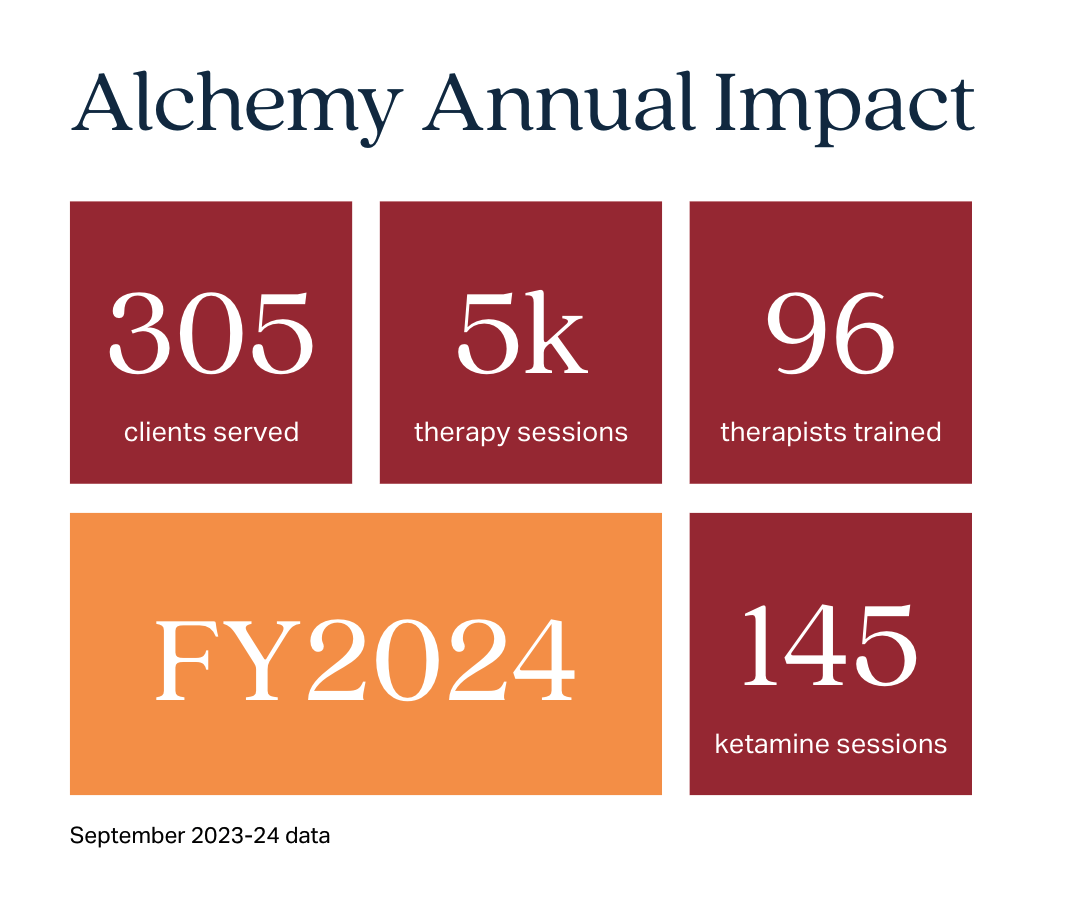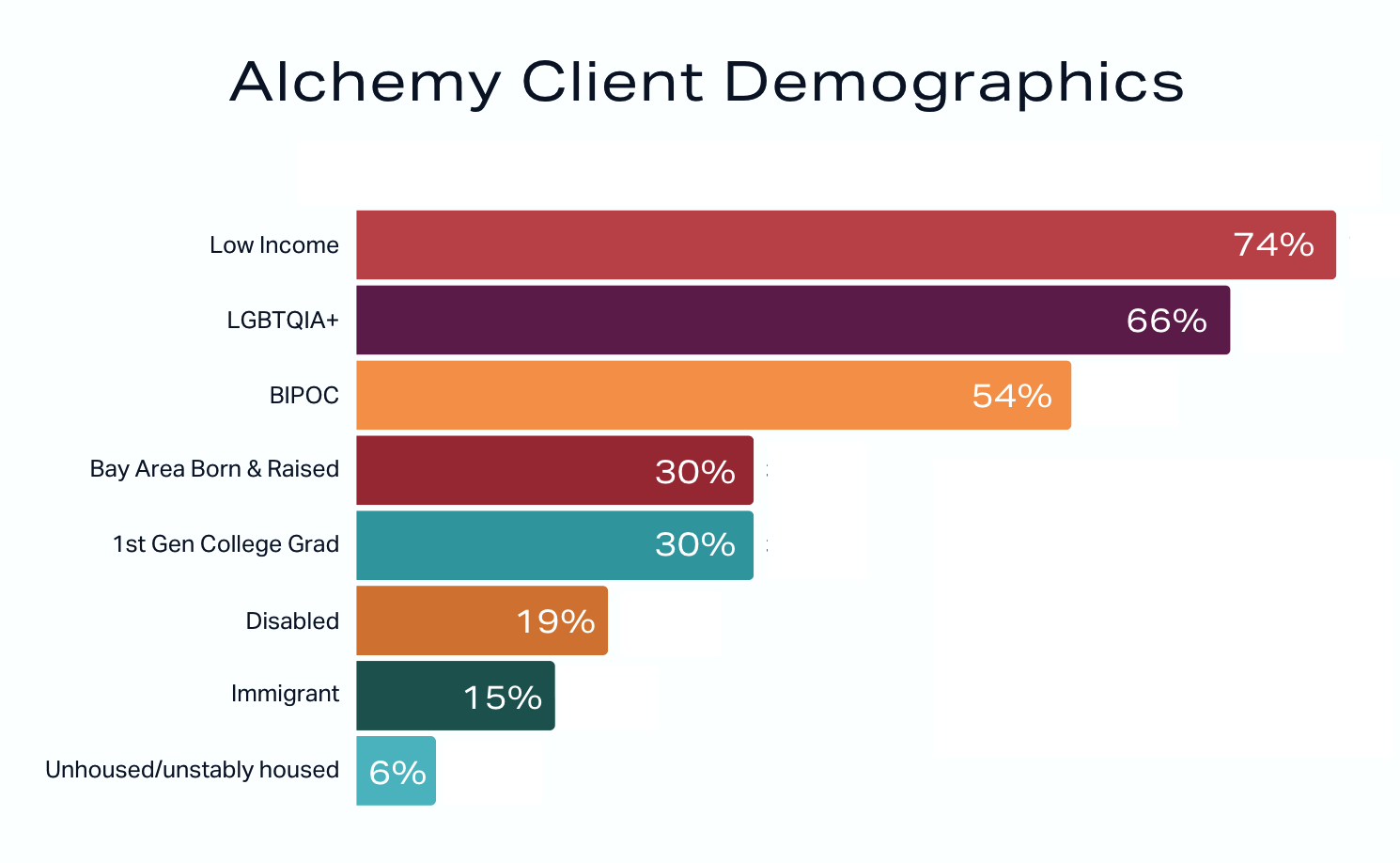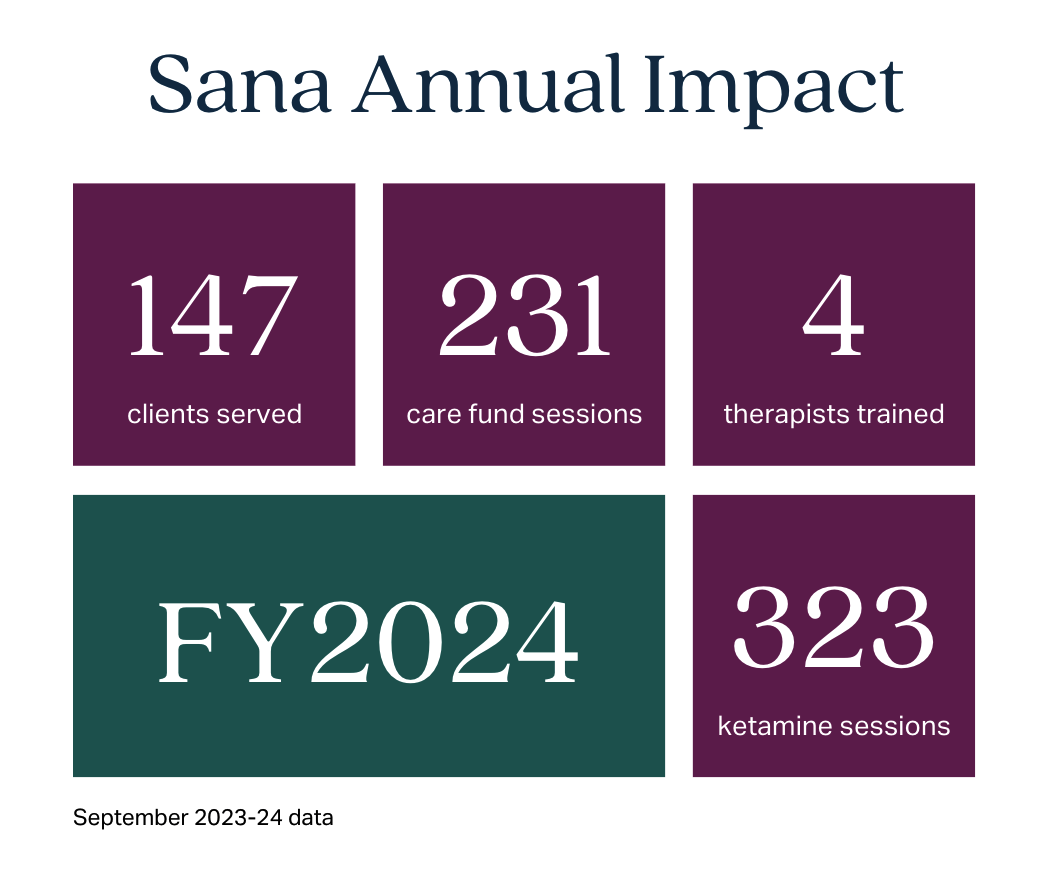
Nonprofit Psychedelic
Therapy Business Models
The following information was compiled about two nonprofit psychedelic therapy business models, Alchemy Community Therapy Center & Sana Healing Collective
Alchemy Community Therapy Center
Alchemy Community Therapy Center
📍 Oakland, CA (Ohlone Land)
🗓️ Founded in 2019
Mission & Vision
Mission: To provide affordable psychedelic-assisted therapy to underserved communities, as well as high-quality training to diverse therapists
Vision: We envision a world where everyone has access to liberating mental health care, especially communities impacted by systemic injustice
Business Model & Staffing
501(c)(3) nonprofit structure
Sliding-scale clinic with an associate training program and 7-week public ketamine assisted therapy training for practitioners (AlchemyTrainings.org)
Staff of 21 (two full-time staff who work multiple jobs, everyone else part-time)
6 board members (currently recruiting!)
Leadership follows a consensus-based model with some flattening of hierarchy
Ketamine Therapy Model
In-person and virtual KAT (lozenge and suppository only; no on-site medical staff)
Clients must be in therapy during KAT (though often with an Alchemy therapist)
Minimum of 3 prep sessions if already in therapy with Alchemy or outside provider; minimum of 8 prep sessions if not
About 30% of all clients integrate KAT into their treatment; the rest only receive talk therapy
Sliding Scale Model
Clients are assessed based on financial privilege and invited to select a fee within a suggested equitable range
Fee range: $60 to $300 per 50-minute session
KAT session pricing: 3-hour in-person sessions charged at 4x the hourly rate; virtual sessions at 3x the rate
Associate Therapist Training
2-year program for AMFTs, ACSWs, APCCs, and psychology associates
Weekly didactic training taught through harm reduction, trauma-informed, depth psychotherapy, and social justice theoretical frameworks
Intensive KAT training, starting with several rounds of co-therapy & eventually offering KAT without a supervisor present
Paid supervision and basic required employee benefits (sick time, CalWorks, overtime, etc.)
After graduation, associates can continue as therapists at Alchemy through a fee-split model of payment: 50% post-grad; 60% post-licensure
Over Alchemy’s First 5 Years
690 Clients Served
25k Therapy Sessions
570 Ketamine Sessions
24 Associate Graduates
192 Public Training Graduatess
Read about last year’s accomplishments in our 2024 Annual Report.
Contact
Sana Healing Collective
Sana Healing Collective
📍 Chicago, IL (Kickapoo, Peoria, & Potowatomi Land)
🗓️ 501(c)(3) Founded in 2019, clinical operations began in 2021
Mission & Vision
At Sana Healing Collective we embrace an ecological understanding of humans, recognizing that mind is inseparable from the body, and people live in the context of their relationships, environment, community, and culture. We aim to realize and integrate Sana, or healing, through a multidisciplinary approach incorporating cutting-edge innovation in mental health, bodywork, group, art, community, and environmental programs. We also recognize time-tested wisdom cultivated over millennia, and strive to weave this knowledge into our work at all levels. We are committed to individualized, client-led approaches that promote the wellbeing of the whole person, their community, and our environment.
Business Model & Staffing
501(c)(3) nonprofit structure
Community collective multidisciplinary healing center with psychology practicum student training opportunities
Staff of 7 (directors are part-time)
7 board members; all local
Collective co-director leadership with consensus-based decisions
Ketamine Therapy Model
In-person KAT only (IM, IV, lozenge, subcutaneous) with in-house nurses to prescribe and administer
Clients must be in therapy during KAT (often with an outside provider)
Minimum of 3 prep sessions
About 30% of all clients integrate KAT into their treatment; the rest only receive talk therapy
Community Care Fund (CCF)
5% of organization’s net revenue is reinvested into CCF; additional funding raised via community events
In FY 2023, 17% of clients (147) received CCF support, covering 231 sessions and totaling over $27,400 in aid
Clients complete a financial and social needs intake, including identity, structural oppression, and community service involvement. Payment plans and partial subsidies for clinical services are offered to those who are selected.
Psychology Practicum Training
1-year placement for advanced psychology practicum students (unpaid due to practicum regulations)
Interns provide individual therapy solo, while co-facilitating KAT sessions and integration groups with supervisors present
Weekly didactics led by supervisors, collaborators, and interns
Each intern receives weekly clinical supervision and rotates supervisors mid-year for broader perspective
Contact
Considerations for Equitable Nonprofit Psychedelic Therapy Clinics
Whose voices are at the table?
Corporate practice of medicine law
Leadership structure
Interns/associates or licensed clinicians only?
What does onboarding and training look like?
Prescribing internally or in collaboration with a different org?
How to subsidize care
Community integration/Indigenous reciprocity
Board member recruitment & diversity
What routes of administration?





